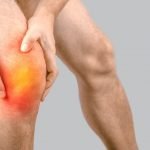The Stress-Pain Connection
Stress is a natural response to challenging situations. When you encounter a stressor, your body releases stress hormones, such as cortisol and adrenaline, in preparation for a “fight or flight” response. This hormonal surge can affect various systems in your body, including the musculoskeletal and nervous systems, often manifesting as muscle tension, increased heart rate, and heightened sensitivity to pain. For individuals already living with chronic pain conditions like arthritis pain, back pain, or knee pain, this heightened stress response can exacerbate their suffering.
Understanding the stress-pain connection is vital because, by managing stress effectively, you can potentially reduce the intensity of your pain and improve your overall quality of life.
Strategies for Relaxation
- Mindfulness Meditation: Mindfulness meditation is a practice that involves focusing your attention on the present moment without judgment. Research shows that regular mindfulness meditation can help reduce stress and alleviate pain. It enables you to develop a greater awareness of your body and its sensations, which can aid in identifying and releasing areas of tension.
- Deep Breathing: Deep, slow breathing techniques are a simple yet effective way to manage stress. When you take deep breaths, you stimulate the body’s relaxation response, leading to reduced heart rate and muscle relaxation. Practice deep breathing exercises daily to manage stress and mitigate its impact on your pain.
- Progressive Muscle Relaxation: This technique involves systematically tensing and relaxing different muscle groups in your body. It helps you identify and release muscle tension, which can be a significant source of pain for many individuals. By incorporating progressive muscle relaxation into your daily routine, you can reduce stress and alleviate pain.
- Yoga and Tai Chi: Both yoga and Tai Chi are mind-body practices that combine physical postures with mindfulness and deep breathing. These practices can enhance flexibility, balance, and overall physical well-being while reducing stress and chronic pain. Consider attending classes or using online resources to incorporate these activities into your life.
- Acupuncture: Acupuncture is a complementary therapy that involves the insertion of thin needles into specific points on the body. It is believed to help restore the body’s balance and improve the flow of energy. Many individuals find relief from chronic pain and stress through regular acupuncture sessions.
- Heat and Cold Therapy: Applying heat or cold to the affected area can alleviate pain and stress. Heat therapy, like warm baths or heating pads, can help relax tense muscles and reduce pain. On the other hand, cold therapy, such as ice packs, can numb the area and reduce inflammation, leading to pain relief.
- Regular Exercise: Engaging in regular physical activity, especially low-impact exercises like swimming or walking, can help reduce stress and pain. Exercise triggers the release of endorphins, your body’s natural painkillers, and provides an emotional boost as well.
- Cognitive-Behavioral Therapy (CBT): CBT is a therapeutic approach that helps individuals change their negative thought patterns and behaviors. By identifying and addressing stressors and unhealthy coping mechanisms, CBT can be an effective tool in managing stress and, in turn, pain.
- Maintain a Healthy Lifestyle: Proper nutrition, adequate sleep, and maintaining a healthy weight are essential factors in managing both stress and pain. A well-balanced diet and sufficient sleep can help regulate stress hormones and reduce inflammation.
- Seek Professional Guidance: If you’re struggling to manage your stress and pain on your own, don’t hesitate to seek professional help. A pain management physician, like those at Noracare Wellness, can work with you to create a personalized treatment plan that may include medication, physical therapy, and other interventions tailored to your needs.
In Conclusion
Understanding the connection between stress and pain is the first step towards effective pain management. By incorporating these relaxation strategies into your daily life, you can break the cycle of stress exacerbating your chronic pain. If you’re in Saddle Brook, NJ, and dealing with pain, reach out to the team at Noracare Wellness for expert guidance and support in managing your pain and stress effectively. Remember, you don’t have to face chronic pain alone, and there are strategies to help you live a more comfortable and fulfilling life.




















